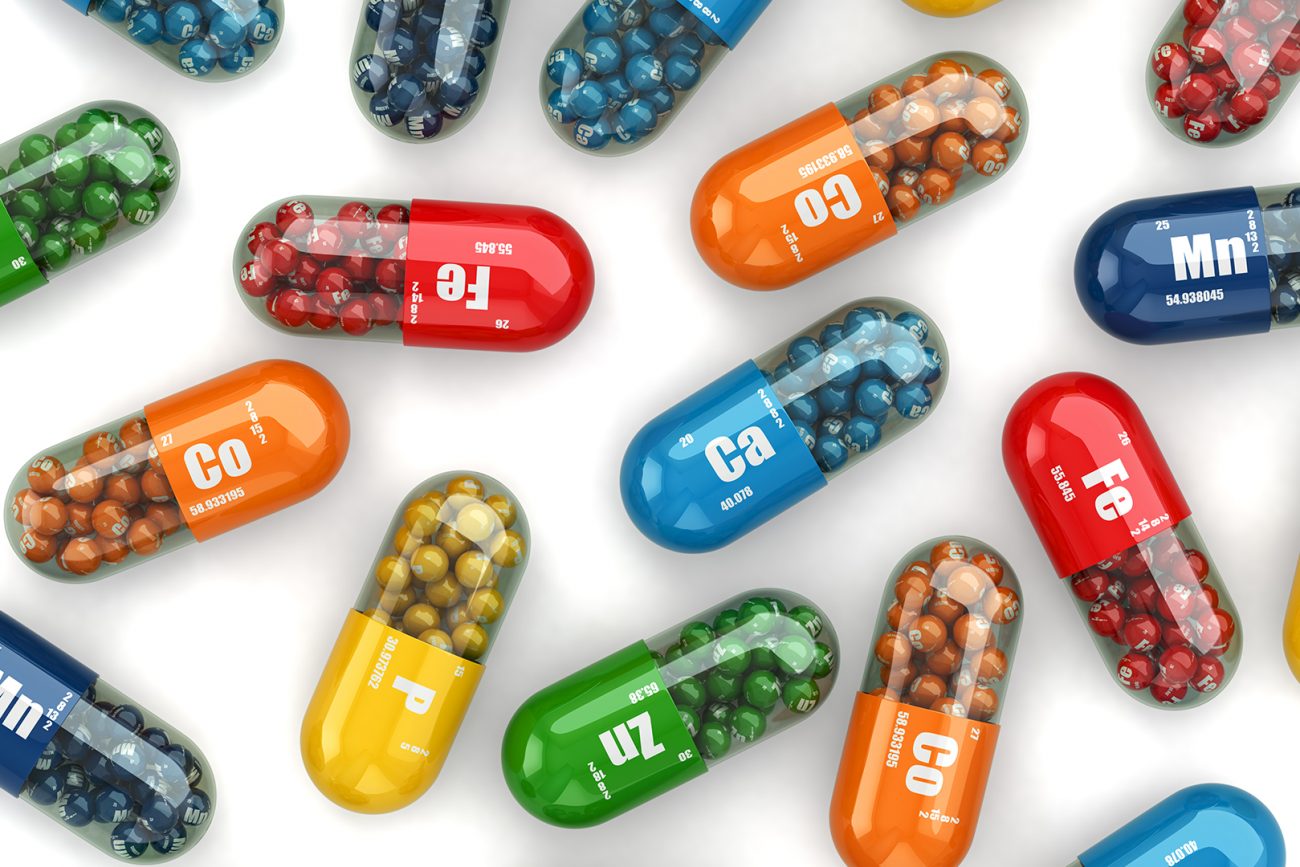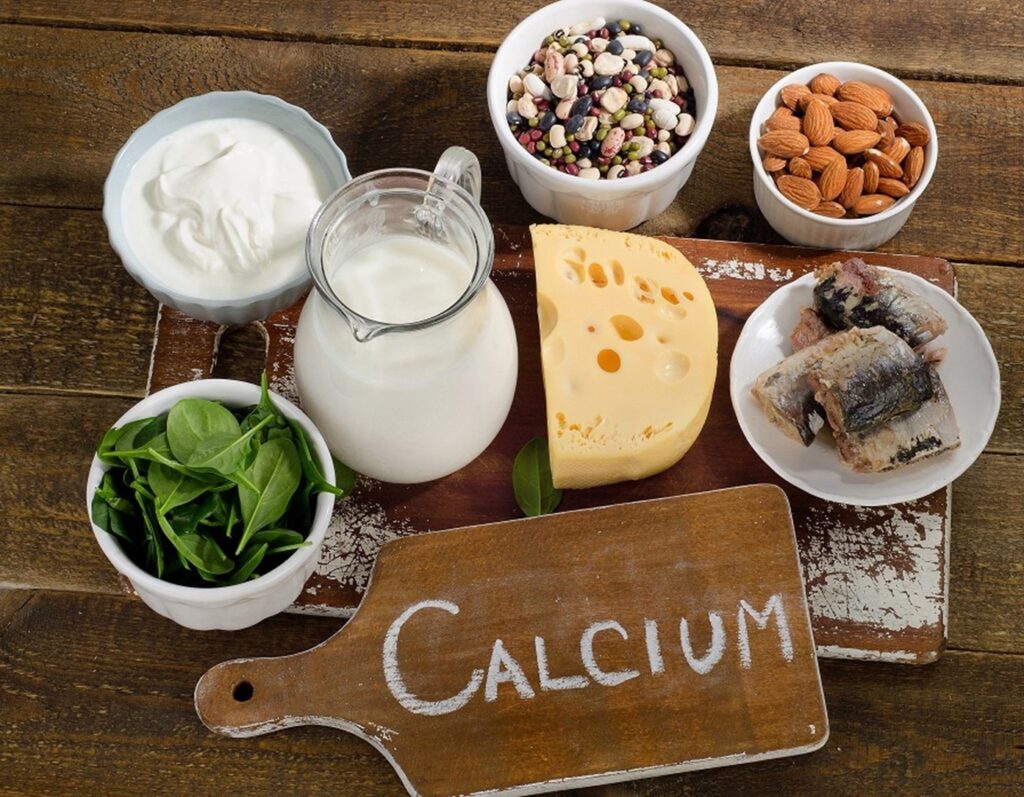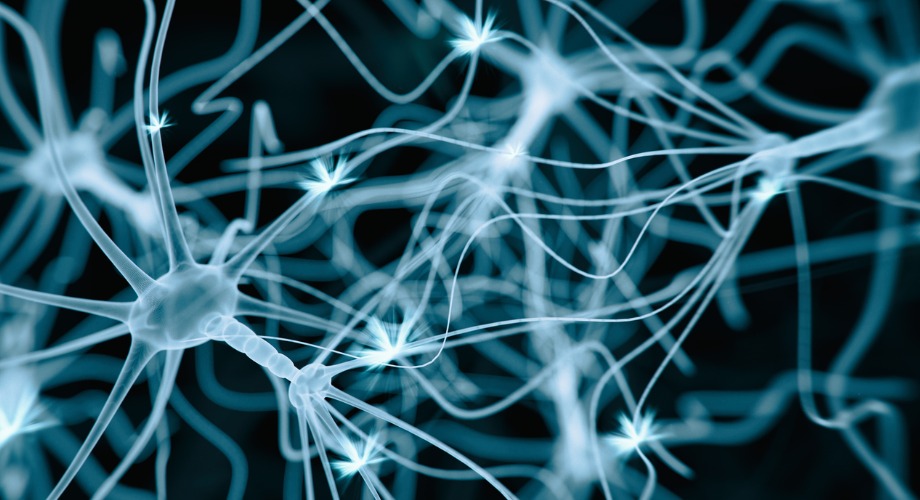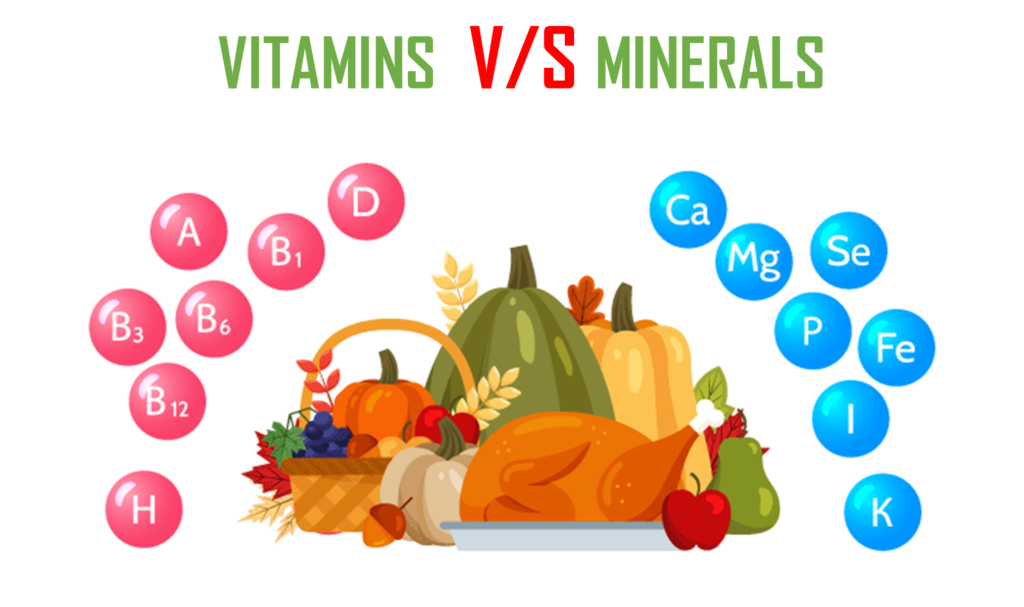What are Minerals?
Minerals are inorganic substances that are necessary for the effective functioning of the human body. These essential nutrients are not the same as vitamins, which are organic substances that are obtained from plants and animals. In contrast, minerals are naturally occurring compounds that are often found in the earth’s soil and water. Since the human body is unable to make these minerals on its own, people must get them from outside sources, largely through the food. These necessary minerals are crucial for a variety of vital physiological processes. Each mineral has its own specialised function and supports a variety of physiological functions, guaranteeing the efficient functioning of vital organs and preserving general health and wellbeing

What are different types of Minerals?
Macro minerals: Macro minerals are a class of necessary minerals that human bodies need in comparatively larger amounts. These minerals are essential for sustaining healthy body processes and overall health. Macro minerals are essential to the development of bones and teeth, nerve function, the contraction of muscles, fluid equilibrium, and generating energy. These minerals are often present in a wide range of meals and are crucial for supporting a number of physiological processes that maintain our bodies operating at its peak. The following are different types of Macro minerals:
1. Calcium: Calcium is the fifth most prevalent mineral in nature and is essential for the formation of bones and teeth. It also helps in the conduction of cells in the circulatory, neurological, and muscular systems.

2. Magnesium: Magnesium regulates heart rhythm, immune system health, bone density, and over 300 metabolic processes. It also helps muscles and nerves work. Additionally, it also contributes to controlling blood pressure and blood sugar levels.
3. Potassium: Potassium balances the pH of the body and is essential for the health of the heart and other cells throughout the body. Bananas, mixed nuts, tuna, cod, milk, vegetables, fish and a variety of fruits contain it.
4. Sodium: Sodium and potassium work together to activate and carry electrical impulses through neurons and muscles. It is crucial for regulating the body’s fluid balance and renal health.
5. Phosphorus: After calcium, this mineral is the second most abundant mineral. Phosphorus helps preserving the cell structure by forming bones. It also helps in pH management, waste filtration and DNA synthesis.

6. Chloride: Chloride is a crucial electrolyte and mineral for the human body. Together with sodium and potassium, it helps to keep the right balance of fluids and acids and bases in the body’s cells and tissues. In addition to being a crucial part of hydrochloric acid, chloride aids in the breakdown of food in the stomach during the digestion process.

Trace minerals: Compared to macro minerals, trace minerals are essential minerals that our bodies need in considerably lesser amounts. These minerals, while having a lesser concentration, are just as crucial to certain physiological functions. The immune system, hormone balance, and enzymatic function are all influenced by trace elements. Even though they are only required in trace amounts, these minerals are essential for sustaining good health and supporting key functions that contribute to general well-being. It is critical to obtain trace minerals through a nutritious diet to guarantee that our bodies acquire enough levels of these key elements. The following are the types of trace minerals:
1. Iron: Iron is an essential trace mineral that helps in developing proteins and enzymes. It is essential for the creation of red blood cells and plays a crucial part in the transportation of oxygen throughout the body. Iron deficiency can cause anaemia and impaired cognitive function. Seafood, dark green vegetables, red meat, chicken, and fermented grains are all excellent sources of iron for the diet.

2. Manganese: Manganese promotes bone formation, metabolic functioning, and wound healing. It has an impact on thyroid hormone production, blood sugar control, and antioxidant activity. A manganese deficiency can result in brittle bones, sluggish nail and hair development, and skin rashes.
3. Copper: Copper is a crucial part of the enzymes involved in the metabolism of iron, the generation of energy, and synthesis of hormones. Along with iron, it supports the health of the nerves and other organs and aids in the production of haemoglobin. Copper deficiency can cause anaemia, impaired immunological function, cardiovascular problems, and bone abnormalities.
4. Iodine: Iodine is necessary for the thyroid hormones’ synthesis, which control metabolism and general body equilibrium. Deficiency in Iodine can result in thyroid problems, weight gain, and mental lethargy.
5. Zinc: Zinc is a trace mineral that is found in all parts of the body. It is essential for tissue repair, immune system support, DNA and protein synthesis, and defence against free radicals. Zinc deficiency can cause skin rashes, anaemia, impaired growth, and poor immunological function.

6. Cobalt: A vital trace element called cobalt helps form the structure of vitamin B12. Cobalt maintains the appropriate functioning of the neurological system and metabolic functions together with vitamin B12. It is also necessary for iron absorption and the generation of healthy red blood cells.
7. Fluoride: The primary function of the trace mineral fluoride is to promote dental health. It assists in remineralizing tooth enamel, strengthening its resistance to decay.
8. Selenium: Selenium is necessary for thyroid function, bone health, DNA synthesis, and reproduction. It is an antioxidant that strengthens the immune system and helps in lowering free radical activity. A selenium deficit can result in thyroid issues, heart issues, and weakened immune system.
Even though trace minerals are only needed in extremely small amounts, they are essential for numerous body processes as well as a healthy lifestyle. An appropriate intake of these crucial trace minerals is made possible by a well-rounded diet that includes a variety of foods high in nutrients.
What are the food sources of Minerals?
| Minerals | Food Sources |
| Calcium: | Dairy products, leafy greens, plant based milk, tofu |
| Magnesium | Nuts and seeds, leafy greens, whole grains, dark chocolate |
| Potassium | Bananas, Oranges, Potatoes, Avocados, beans |
| Sodium | Salt |
| Phosphorus | Meat, fish, Dairy products, grains, nuts |
| Chloride | Salt, Tomato, Celery |
| Iron | Red meat, poultry, beans, spinach, kale |
| Zinc | Oysters, Beef, poultry, beans, nuts, grains |
| Manganese | Nuts, seeds, grains , legumes |
| Cobalt | Meat, fish, shellfish, dairy products |
| Iodine | Seafood, Iodized salt, dairy products |
| Fluoride | Seafood, tea leaves, Fluoridated water |
| Selenium | Brazil nuts, fish, eggs, grains |
| Copper | Shellfish, liver, nuts, seeds, dark chocolate |
Why are Minerals so important for human body?
Our bodies rely substantially on minerals to fuel a wide range of physiological activities that are necessary for optimal health and well-being. Minerals are inorganic substances that are essential to the health of bones, enzyme activity, neuron function, immune system, and many other biological processes. The functions of minerals are as follows:
- Bone health: Minerals like calcium, phosphorus, and magnesium are crucial for keeping bones strong and healthy. In particular, calcium gives bones and teeth their strength and strength by working as the structural support system. Magnesium, phosphorus, and calcium all play important roles in maintaining bone mineralization and mass. Together, these minerals are essential for the development of bones and upkeep, ensuring that our skeletal system is strong and fracture resistant. In particular, during phases of growth and ageing, when bone density and strength may be at risk, adequate consumption of these minerals is essential for preserving bone health throughout life.
- Enzyme Activation: Many minerals function as catalysts for enzymes, which are proteins that are involved in biochemical processes in the body. Magnesium, for example, functions as an intermediate for hundreds of enzymes engaged in different metabolic processes. It is essential for the synthesis of proteins, DNA replication, and the generation of energy. Other minerals, like as zinc, copper, and manganese, also serve as crucial cofactors for several enzyme activities that control diverse physiological functions. For vital body functions, such as digestion, energy generation, and cell repair, optimum enzymatic activity is crucial.
- Nerve function: The proper functioning of the nervous system and the efficient transmission of nerve impulses throughout the body depends on a number of minerals, including sodium, potassium, and calcium. These minerals are essential for preserving the electrical potentials that bridge nerve cell membranes and enable successful nerve cell communication. Sensory perception, muscular contractions, and general body movement and coordination, all depend on this synchronised communication.

- Hormone regulation: Iodine and selenium are two minerals that are especially good examples of how minerals affect hormone function. The thyroid gland, which is responsible for producing hormones, depends on these two trace minerals to function properly. The thyroid gland generates two major hormones, thyroxine (T4) and triiodothyronine (T3), which are known collectively as thyroid hormones. These hormones play a critical role in the regulation of many physiological processes, such as growth, metabolism, and energy expenditure throughout the body.
- DNA synthesis: Copper and manganese are important minerals that are required for DNA synthesis and repair. DNA is the genetic matter that contains the instructions for every cell in the body’s development, growth, and functioning. Manganese functions as a catalyst for several enzymes involved in DNA synthesis and repair. It helps polymerases, the enzymes in charge of creating new DNA strands during cell division and repair, to function. Contrarily, copper has a role in the activity of enzymes that support the synthesis of fresh DNA strands and encourage the preservation of DNA structure.

Each mineral plays a distinct and important part in the human body. It is essential to follow a balanced diet that consists of nutrient-rich meals in order to provide an appropriate intake of minerals and promote the normal functioning of human body. In order to provide the required minerals for optimum health and wellness, a varied assortment of fruits, vegetables, whole grains, nuts, seeds, lean meats, and dairy products can be included in the diet.
What are key differences between Vitamins and Minerals?
Minerals and vitamins are important components that the body needs to function efficiently. They are regarded as micronutrients since the body needs just little amounts of them, despite the fact that they have a big influence on general health. Together, these nutrients support a number of biological processes and contribute to general health.
One of the main differences between Vitamins and Minerals is their chemical structure. Vitamins are organic substances, which means they include carbon and may be destroyed by heat, air, or acid. Minerals, on the other hand, are inorganic chemicals that do not degrade as quickly as vitamins do and preserve their chemical structure. This difference has an impact on how these nutrients are absorbed and used by the body.
Another important contrast between vitamins and minerals is their stability. Minerals, because they are inorganic, are easily absorbed by the body through consumption of plants, fish, animals, and fluids. Vitamins, on the other hand, are more sensitive and prone to deterioration from cooking, storage, and air exposure since they are organic. As a result, it may be more difficult to preserve all of the nutritious benefits of vitamins during food preparation.

For instance, vitamin D promotes healthy bones by facilitating the absorption of calcium from dietary sources. Iron absorption is aided by vitamin C, supporting the health of red blood cells. Some interactions, however, may be less favourable; for example, vitamin C may hinder the body’s capacity to absorb the vital mineral copper.
In conclusion, both vitamins and minerals are necessary for human health, but they differ in terms of their chemistry and vulnerability to deterioration. Understanding the functions and sources of these micronutrients is critical to maintaining a balanced and healthy diet. People can get the essential vitamins and minerals to support their overall health and wellbeing by having a wide variety of nutritious meals.
What format should you choose? Tablets or Capsules
When it comes to mineral supplements like calcium, iron, zinc, or magnesium, both tablets and capsules can be effective. The decision between tablets and capsules, however, may be influenced by individual preferences and specific needs. Here is a breakdown of dose and considerations that might assist you in making a decision.
Tablet:
- Diverse forms: Tablets are available in a wide range of compositions to suit a range of tastes and requirements. Chewable tablets are useful for people who have trouble swallowing regular pills, thus some people may prefer them. Chewable pills are another popular alternative for children and adults who want to eat minerals in a more enjoyable method. long-release pills, on the other hand, are developed to gradually release minerals into the body over a long period of time, offering a consistent and continuous supply of nutrients.
- Divisibility: Some tablets have score lines that make it simple to cut them into halves or quarters. This feature is very helpful for people who wants to consume certain amounts of minerals due to medical issues or expert recommendations. Individuals can adjust their dosage to match their specific needs by dividing tablets, ensuring they receive the right amount of mineral
Capsule:
- Faster absorption: Minerals are absorbed into the body more quickly when taken in capsule form because of their speedy dissolution in the digestive system. Most capsules include an outer shell consisting of gelatin or a plant-based substance that quickly degrades and releases the mineral contents for simple absorption. This quick absorption makes sure the minerals are always available to the body, enabling effective use and possible health advantages.
- Tasteless and Odourless: Those who might be sensitive to the taste or odour of minerals have a great alternative in capsules. The technique of encapsulating serves to mask the taste and odour of minerals. This is especially advantageous for minerals that have overpowering or disagreeable tastes that make them unappealing when taken in other forms.
Considerations:
- Medical Considerations: For those who have specific medical concerns, such as gastrointestinal disorders, capsules may be a more gentle and harmless solution for their stomach than tablets. For some who might find tablets uncomfortable to swallow, the smooth, gelatinous covering of capsules makes swallowing simpler.
- Vegan Preferences: Compared to tablets, which sometimes include gelatin coverings, capsules provide a larger variety of dietary alternatives, including vegetarian and vegan options, making them acceptable for people with dietary restrictions or allergies to gelatin. By choosing capsules, you can be sure that your supplement usage fits your dietary needs.
- Professional Advice: It is important to take the advice of healthcare professionals into account when choosing between tablets and capsules, particularly when using supplements alongside with prescription or OTC (Over the Counter) medications. Some supplements or medications may need some unique formulations. Healthcare professionals can provide insightful advice on the best option based on your specific needs and health concerns.
However, your own tastes and dietary requirements will ultimately determine whether you choose a tablet or a capsule. For instance, some people could choose mineral tablets for their potency, while others would prefer mineral capsules due to their faster rate of absorption. This choice can be influenced by any medical requirements or recommendations, both of which are proportionate. However, you must ensure that the dose type you select will benefit you in terms of your own health objectives or when combined with any medicine.
Glentworth Formulations is here to suit your every need. Everything from Tablet, Capsule and Powder blends.
If you are wanting to know more information, please get in contact with us. Either using the contact form or contacting us directly on: [email protected].


